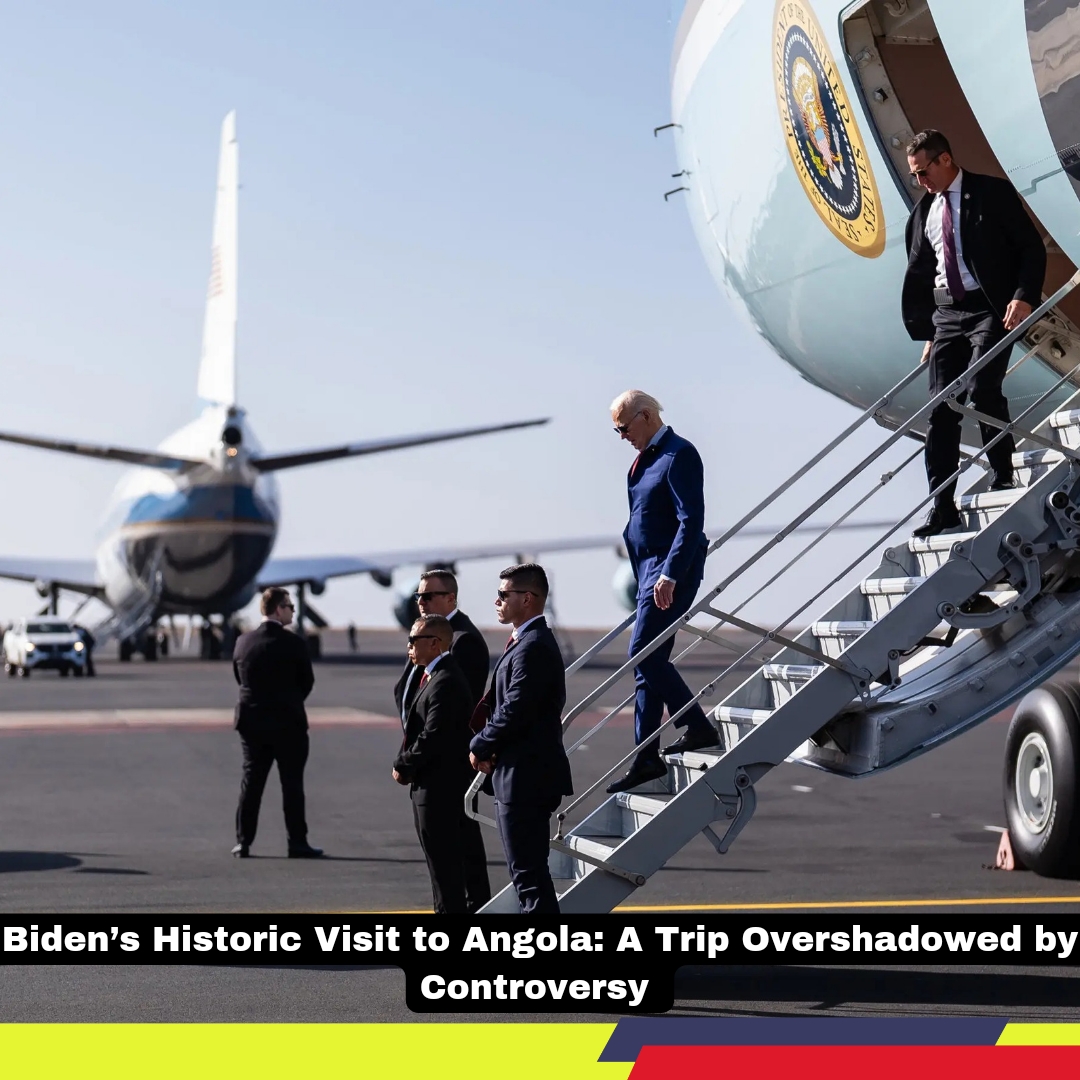President Joe Biden landed in Angola on Monday, marking his first—and potentially only—visit to sub-Saharan Africa during his presidency. The trip, aimed at strengthening U.S.-Africa ties and countering China’s growing influence in the region, also came under scrutiny due to a controversial pardon granted to his son, Hunter Biden, just hours before his departure.
A Delayed Commitment to Africa
The trip fulfills a long-standing promise by President Biden to visit sub-Saharan Africa, a region American president have largely overlooked in recent years. Not since Barack Obama’s 2015 visit has a U.S. president set foot in the region. Biden’s arrival in Luanda, the Angolan capital, underscores the administration’s intent to foster closer ties with African nations amid an escalating global economic rivalry with China.
Angola, a country rich in natural resources and strategically positioned in southern Africa, has become a focal point of competition between global powers. During his visit, President Biden plans to highlight significant American investments, including a $1 billion rail corridor project that aims to boost regional trade and development. His itinerary also includes a visit to a slavery museum, underscoring the administration’s recognition of Africa’s historical significance and the shared legacy of the transatlantic slave trade.
The Challenge of Competing with China
China has significantly expanded its economic footprint in Africa over the past two decades, funding infrastructure projects, providing loans, and strengthening trade ties. Biden’s visit is part of a broader U.S. strategy to re-engage with African nations and position the United States as a reliable partner. However, critics argue that the administration’s efforts may be too little, too late, given the scale of China’s investments on the continent.
A Trip Clouded by Controversy
While the focus of Biden’s visit was intended to be on economic cooperation and shared aspirations, the narrative was quickly overshadowed by domestic controversy. Hours before leaving Washington, President Biden issued a “full and unconditional” pardon for his son, Hunter Biden, who had been convicted of tax evasion and lying on a firearms application. The move, a sharp departure from Biden’s repeated promises to let judicial processes run their course, sparked backlash from both Republicans and some Democrats.
Critics have accused the president of undermining the integrity of the justice system by using his executive powers to absolve his son. For many, the timing of the pardon—just before an international trip—has further muddled the administration’s message of democratic accountability and transparency.
Balancing Legacy and Controversy
President Biden’s visit to Angola reflects his administration’s broader goals of revitalizing U.S. engagement with Africa and showcasing American alternatives to Chinese economic influence. However, the timing of the domestic controversy threatens to dilute the intended impact of the trip.
With his presidency nearing its end, Biden’s visit is both a symbolic gesture and a strategic move to leave a lasting impression on U.S.-Africa relations. Whether this effort will resonate with African leaders—and the American public—remains to be seen, as domestic and international audiences grapple with the complexities of his decision-making on and off the world stage.




